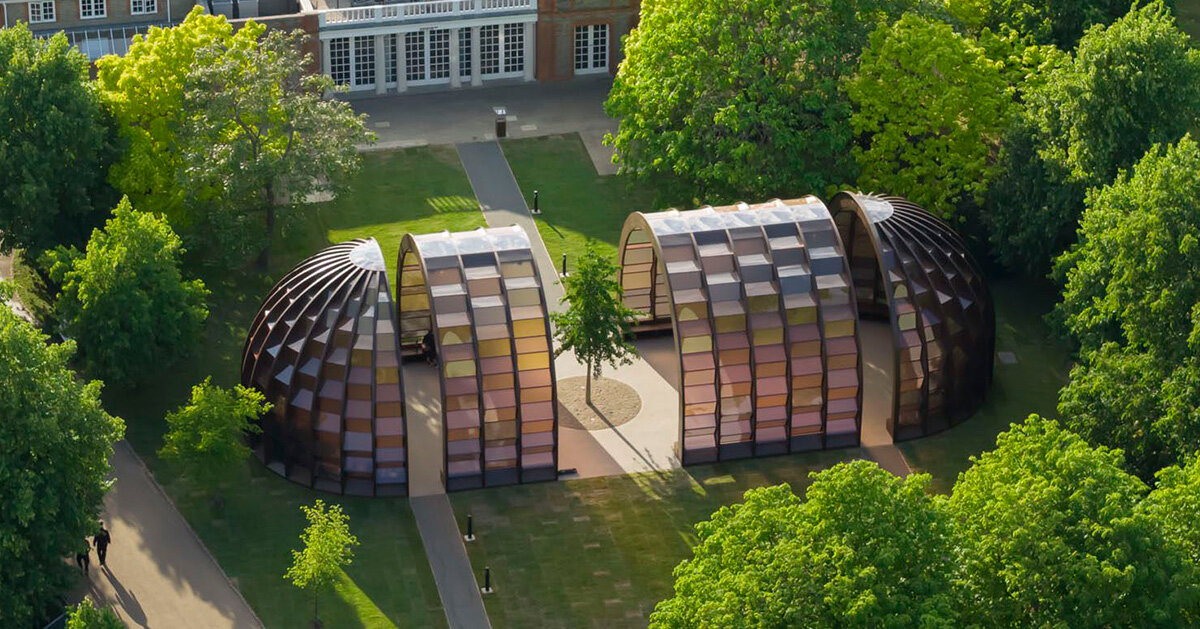Designboom
3d
205

Image Credit: Designboom
marina tabassum on her design for the serpentine pavilion 2025 as it opens in london
- The 2025 Serpentine Pavilion by Marina Tabassum Architects, titled A Capsule in Time, explores impermanence, tactility, and light through a modular timber structure in London's Kensington Gardens.
- Inspired by the hydrologic landscapes of Bangladesh, the pavilion features four translucent capsules, drawing attention to shifting light and ephemerality.
- Using wood for the first time, Marina Tabassum aimed for dry construction potential, future reuse, and local availability in the design of the pavilion.
- A kinetic capsule within the pavilion allows parts to shift for public programming, showcasing the integration of functional space with connective design.
- The pavilion hosts a ginkgo tree at its center, symbolizing resilience and bringing life into the structure to create a unique atmosphere.
- Bookshelves with banned Bengali literature and other texts serve to promote knowledge sharing and dialogue in a time of global censorship and uncertainty.
- Marina Tabassum's approach to the pavilion reflects her fascination with architecture's connection to time and light, drawing inspiration from her Bangladeshi roots.
- The design intentionally incorporates translucent facades to play with light and shadow, highlighting the interplay of natural elements within the space.
- The pavilion's sustainability is enhanced by the conscious choice of materials like wood and polycarbonate, ensuring future reuse and minimal environmental impact.
- Through elements like the kinetic structure, integration of nature, and emphasis on knowledge sharing, the pavilion becomes a space for resistance, celebration, and community engagement.
Read Full Article
12 Likes
For uninterrupted reading, download the app